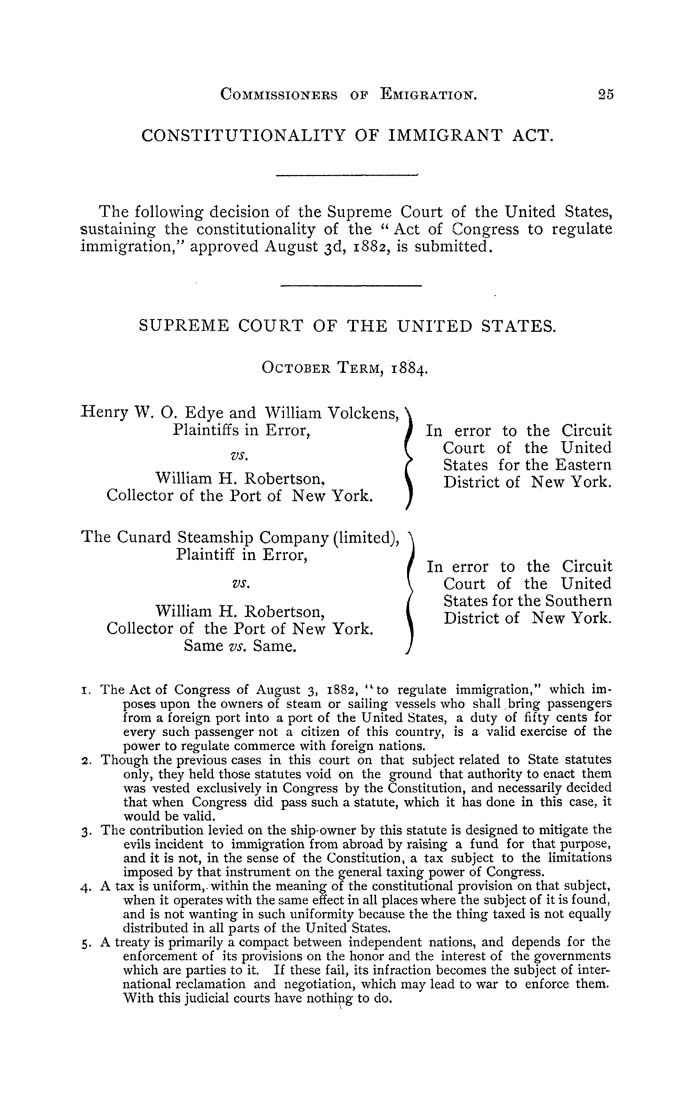Commissioners op Emigration.
CONSTITUTIONALITY OF IMMIGRANT ACT.
25
The following decision of the Supreme Court of the United States,
sustaining the constitutionality of the " Act of Congress to regulate
immigration/' approved August 3d, 1882, is submitted.
SUPREME COURT OF THE UNITED STATES.
October Term, 1884.
Henry W. O. Edye and William Volckens,
Plaintiffs in Error,
vs.
William H. Robertson,
Collector of the Port of New York.
In error to the Circuit
Court of the United
States for the Eastern
District of New York.
The Cunard Steamship Company (limited).
Plaintiff in Error,
vs.
William H. Robertson,
Collector of the Port of New York.
Same vs. Same.
In error to the Circuit
Court of the United
States for the Southern
District of New York.
1. The Act of Congress of August 3, 1882, "to regulate immigration," which im¬
poses upon the owners of steam or sailing vessels who shall bring passengers
from a foreign port into a port of the United States, a duty of fifty cents for
every such passenger not a citizen of this country, is a valid exercise of the
power to regulate commerce with foreign nations.
2. Though the previous cases in this court on that subject related to State statutes
only, they held those statutes void on the ground that authority to enact theni
was vested exclusively in Congress by the Constitution, and necessarily decided
that when Congress did pass such a statute, which it has done in this case, it
would be valid.
3. The contribution levied on the ship-owner by this statute is designed to mitigate the
evils incident to immigration from abroad by raising a fund for that purpose,
and it is not, in the sense of the Constitution, a tax subject to the limitations
imposed by that instrument on the general taxing power of Congress.
4. A tax is uniform,-within the meaning of the constitutional provision on that subject,
when it operates with the same effect in all places where the subject of it is found,
and is not wanting in such uniformity because the the thing taxed is not equally
distributed in all parts of the United States.
5. A treaty is primarily a compact between independent nations, and depends for the
enforcement of its provisions on the honor and the interest of the governments
which are parties to it. If these fail, its infraction becomes the subject of inter¬
national reclamation and negotiation, which may lead to war to enforce them.
With this judicial courts have nothing to do.
|








